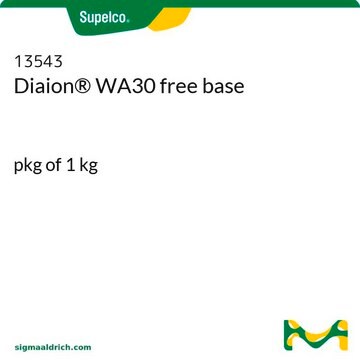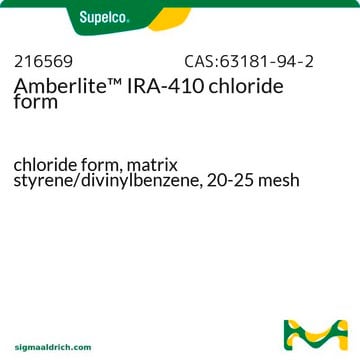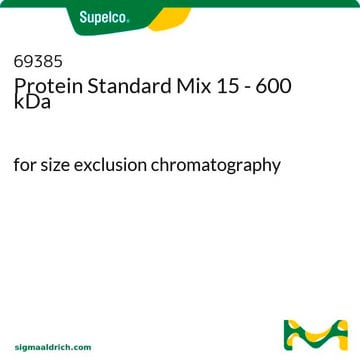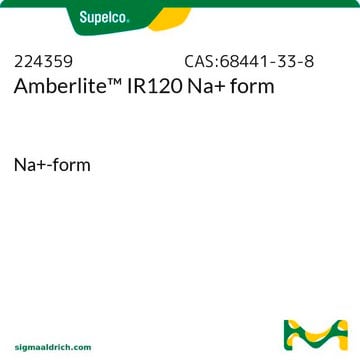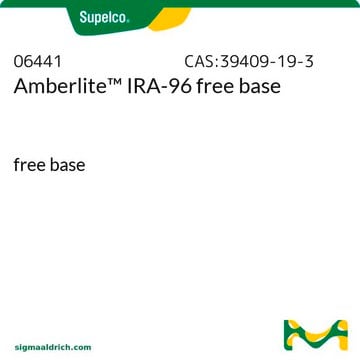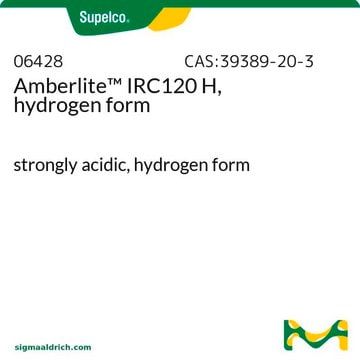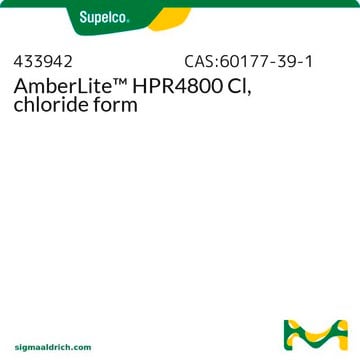Recommended Products
form
solid
Quality Level
packaging
pkg of 100 g
parameter
100 °C max. temp.
moisture
~49%
technique(s)
LPLC: suitable
matrix
styrene-divinylbenzene (highly porous)
particle size
16-50 mesh
operating pH
0-9
capacity
1.5 meq/mL by wetted bed volume
3.0 meq/g by dry weight
Looking for similar products? Visit Product Comparison Guide
Related Categories
Application
Diaion® WA30 free base is an anion exchange resin for high molecular weight organic acids. It has been used in conjunction with electrodialysis to remove salt and selective organic acids from salted Japanese apricot.
Weakly basic anion exchange resin that is best in class for high MW organic acids. It also has a strong decolorization capability. Applications for the resin include: water treatment, pretreatment of corn syrup, beet sugar and dextrose, refining of formalin, glycerine, and enzymes, and as a weak base catalyst. This resin meets requirements of FDA Food Additive Regulation 21 CFR 173.25.
Legal Information
Diaion is a registered trademark of Mitsubishi Chemical Corp.
Storage Class Code
11 - Combustible Solids
WGK
WGK 3
Flash Point(F)
Not applicable
Flash Point(C)
Not applicable
Personal Protective Equipment
dust mask type N95 (US), Eyeshields, Gloves
Choose from one of the most recent versions:
Already Own This Product?
Find documentation for the products that you have recently purchased in the Document Library.
Customers Also Viewed
W Takatsuji et al.
Journal of bioscience and bioengineering, 88(3), 348-351 (2005-10-20)
With the aim of repeatedly reusing the solution used to season salted ume (Japanese apricot), we investigated its desalting and deacidification by electrodialysis, precipitation, and adsorption. Although NaCl and acids could be easily removed from used seasoning solution by electrodialysis
Our team of scientists has experience in all areas of research including Life Science, Material Science, Chemical Synthesis, Chromatography, Analytical and many others.
Contact Technical Service